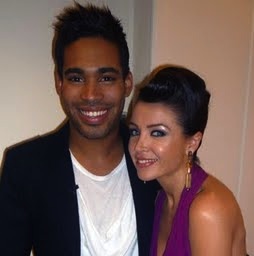
Firstly Anton du Beke caused a(nother) race row at the BBC when he made a poor “joke” to his Strictly Come Dancing partner Laila Rouass.
Then, live on Saturday’s X Factor, Dannii Minogue questioned whether contestant Daryl should’ve changed the lyrics on his song because he’s bisexual.
In the second case, particularly, this sent up a flurry of activity on Twitter — it’s not often that something from the UK makes the trending topics so consistently — and elsewhere, with some of it calling for Dannii to leave the show, or at least apologise.
Regardless of how (over) sensitive the British public may have become, and the collective baying for blood that use to be the prerogative of a certain section of bloggers, it’s interesting to see how the conversation unfolded on Dannii Minogue’s official Twitter account.
In one tweet, Dannii said that she would be “happy to apologise on camera”, while today she pointed to an official statement on her blog.
Both names apologised fairly quickly (though for some this still isn’t enough). I’m curious to know how much social media played a part in the quick turnaround. Would Dannii have apologised so quickly had she not been active and monitoring her own Twitter feed? Would a slower moving complaints procedure have reflected the mood of a large section of the Saturday-night-reality-show-watching populace?
After all, it costs nothing to send a quick @ to Dannii Minogue, but to ring ITV and complain costs both time and money, and apart from being part of a “number of complaints” statistic, probably doesn’t get you far.
Originally posted on October 12, 2009 @ 10:20 am